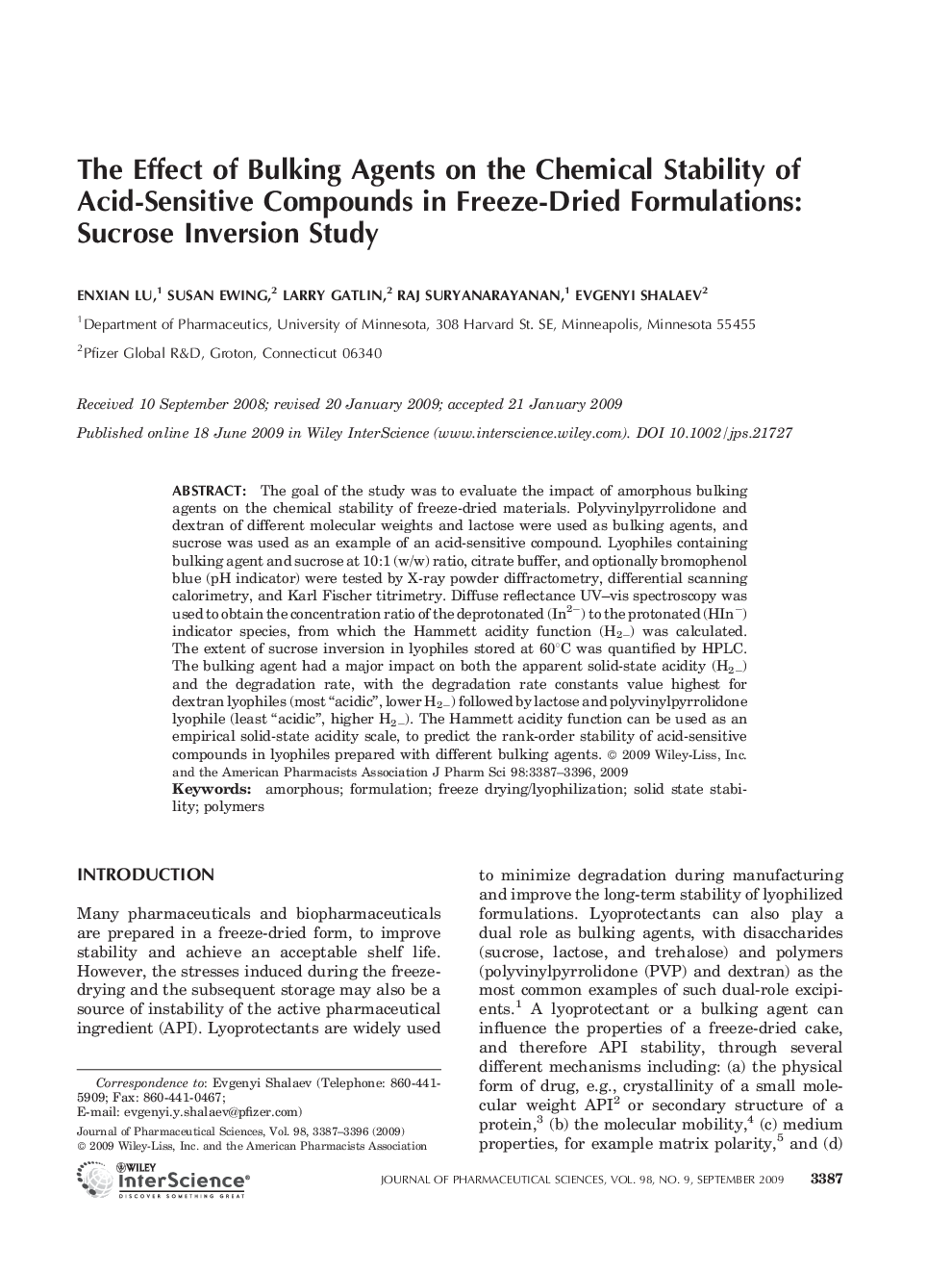| Article ID | Journal | Published Year | Pages | File Type |
|---|---|---|---|---|
| 2486845 | Journal of Pharmaceutical Sciences | 2009 | 10 Pages |
Abstract
The goal of the study was to evaluate the impact of amorphous bulking agents on the chemical stability of freeze-dried materials. Polyvinylpyrrolidone and dextran of different molecular weights and lactose were used as bulking agents, and sucrose was used as an example of an acid-sensitive compound. Lyophiles containing bulking agent and sucrose at 10:1 (w/w) ratio, citrate buffer, and optionally bromophenol blue (pH indicator) were tested by X-ray powder diffractometry, differential scanning calorimetry, and Karl Fischer titrimetry. Diffuse reflectance UV-vis spectroscopy was used to obtain the concentration ratio of the deprotonated (In2 â) to the protonated (HIn_) indicator species, from which the Hammett acidity function (H2 â) was calculated. The extent of sucrose inversion in lyophiles stored at 60 °C was quantified by HPLC. The bulking agent had a major impact on both the apparent solid-state acidity (H2 â) and the degradation rate, with the degradation rate constants value highest for dextran lyophiles (most "acidic'', lower H2_) followed by lactose and polyvinylpyrrolidone lyophile (least "acidic", higher H2 â). The Hammett acidity function can be used as an empirical solid-state acidity scale, to predict the rank-order stability of acid-sensitive compounds in lyophiles prepared with different bulking agents.
Related Topics
Health Sciences
Pharmacology, Toxicology and Pharmaceutical Science
Drug Discovery
Authors
Enxian Lu, Susan Ewing, Larry Gatlin, Raj Suryanarayanan, Evgenyi Shalaev,
